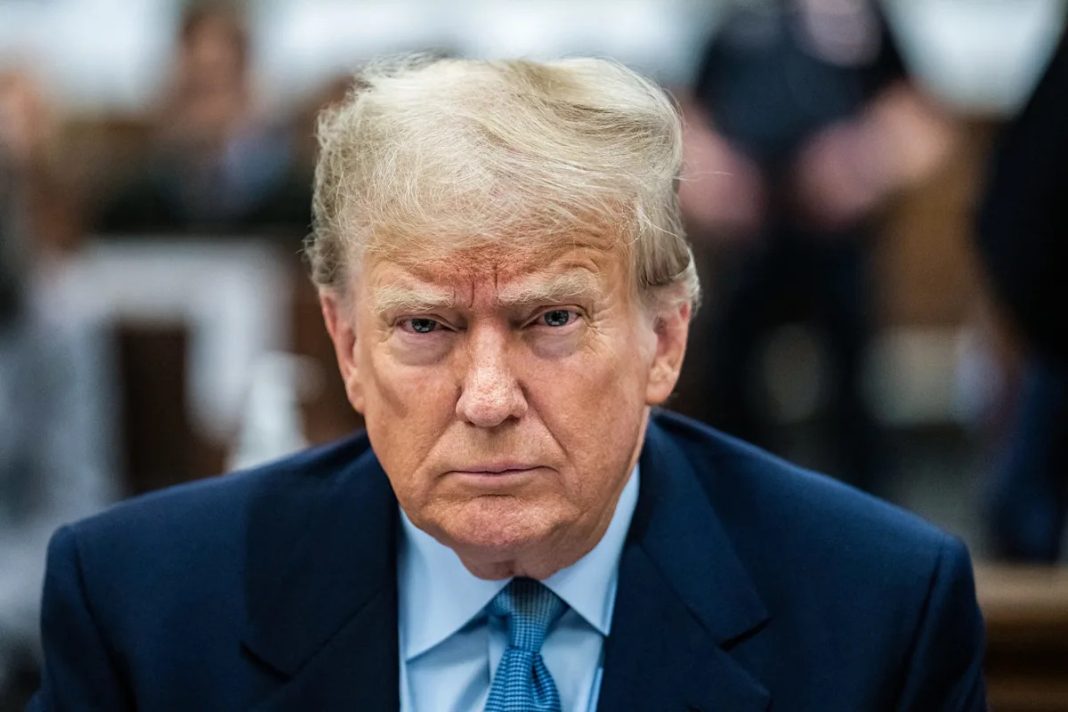President Donald Trump and New York Attorney General Letitia James both awkwardly claimed victory Thursday after New York’s intermediate appeals court handed down its ruling in Trump’s civil fraud case. But it would make for an odd ending to the case, because, strange as it is to say, it’s not really a ruling.
Clicking into the PDF on the New York court system’s website and seeing that the document spans 323 pages was a hint that it contained something unusual.
But that was just the beginning. The oddity grew upon seeing, toward the start of the first of three separate decisions from the five-justice panel, that “none of the three decisions garners a majority.”
OK, so how do we get a clear decision out of this?
We don’t, really.
That first opinion, by Justice Peter Moulton joined by Justice Dianne Renwick, said that those two justices thought New York’s attorney general acted lawfully in bringing the fraud case. But they said that ordering the defendants to “pay nearly half a billion dollars” to New York amounts to an “excessive” and unconstitutional fine.
The second opinion, by Justice John Higgitt joined by Justice Llinét Rosado, agreed that James had the authority to bring the suit but said they thought a new trial was warranted.
The third opinion, by Justice David Friedman, argued for dismissing the case outright in Trump’s favor.
So, we have three opinions saying different things. How did the panel attempt to come to a resolution?
“With great reluctance,” according to Higgitt and Rosado.
Though they thought a new trial was needed, their opinion said that “after much consideration, with great reluctance and with acknowledgement of the incongruity of the act,” they agreed to join the bottom line of Moulton and Renwick’s opinion that tosses out the massive financial penalty as well as sanctions on Trump defense lawyers, while otherwise upholding the case in James’ favor.
Citing the “truly extraordinary circumstances here, where none of the writings enjoys the support of a majority,” they said the parties “must have a decision on this matter and, concomitantly, the option of further review of this matter by the Court of Appeals.”
The Court of Appeals is New York’s highest court.
The jumble of opinions alone suggests the case could use some fine-tuning on further appeal, leading to something more closely resembling an opinion with a clear majority and everything. James, whom the Trump administration is investigating in response to her investigating him prior to the election, has already signaled her intent to take the case to that higher court.
James, who has denied any wrongdoing herself, said in a statement Thursday that the appeals court “affirmed the well-supported finding of the trial court: Donald Trump, his company, and two of his children are liable for fraud.” She said the court “upheld the injunctive relief we won, limiting Donald Trump and the Trump Organization officers’ ability to do business in New York. It should not be lost to history: yet another court has ruled that the president violated the law, and that our case has merit.” She concluded: “We will seek appeal to the Court of Appeals and continue to protect the rights and interests of New Yorkers.”
Well, OK. Thursday’s opinions theoretically support that statement, which didn’t address the staggering penalty being tossed out except implicitly in the part about seeking an appeal. But it reads a bit differently against the background above than it would if one were reading the statement alone without any other context.
Likewise, Trump’s statement that Thursday’s ruling was a “TOTAL VICTORY” is not correct. Just ask Friedman, whose decision Trump lauded in that same Truth Social post, in which the president said he was “so honored by Justice David Friedman’s great words of wisdom.”
In his lone opinion, Friedman marveled at the outcome. He observed that although three of the five justices — Higgitt, Rosado and himself — “believe that the judgment in favor of the Attorney General should not stand … the result of the appeal is the affirmance of the judgment, albeit as modified to eliminate the disgorgement award.” He then made a football analogy, writing that the result “is as if a team is awarded a touchdown without crossing the goal line.”
It’s certainly an odd case. But to take the sports analogy further, the game isn’t over yet.
Subscribe to the Deadline: Legal Newsletter for expert analysis on the top legal stories of the week, including updates from the Supreme Court and developments in the Trump administration’s legal cases.
This article was originally published on MSNBC.com

